President Obama has been criticized for overstepping constitutional boundaries with his governing approach dependent on his “pen” and his “phone”. The Supreme Court has made sweeping constitutional decisions regarding Obamacare and same sex marriage. Both the executive and the judiciary have been described as “lawless” in these and other contexts. That description principally addresses perceived failures to adhere to the US Constitution.
Did the Constitution fare well in the first Republican presidential debates? Did those debates hold a clue about the commitment of Republican candidates to a critical American principle: “the rule of law, not men”? This piece looks at the candidates in the first of the two “debates”. The nature of the forum limited the candidates, but here’s the things each had to say about constitutional issues. Check The Republican “Prime Time” Debate and the Constitution for the constitutional comments in the second debate.
There was criticism of Senator Santorum’s mention of the worst Supreme Court decision in US history Dred Scott v. Sandford, in the context of the recent Supreme Court creation of a constitutional right to same sex marriage. Senator Santorum was answering a question about Supreme Court decisions creating “settled law”. In providing the Dred Scott example, Santorum properly demonstrated the mistake in referring to a Supreme Court opinion as “settled law”.
Dred Scott had ruled that no black could ever become an American citizen. While it took a Civil War and the 13th Amendment to overturn that decision, it was hardly ever “settled law”. Santorum’s reference did not compare the issues of slavery to same sex marriage, but was instructive on a constitutional principle: Supreme Court decisions can be overruled, and those that disagree with a decision need not discontinue their work to overturn such decisions.
Governor Gilmore expressed his thoughts regarding appointments to the Supreme Court, a critical presidential power. On this issue, Gilmore said:
“I believe we should be appointing Supreme Court justices who will follow the law and not try to make the law. Now, the challenge we’re seeing today is that the Supreme Court is being converted into some type of political body.”
The idea that a Supreme Court justice should be nominated and confirmed based upon a commitment to the constitutional rule of law, rather than considerations of a justice’s policy preferences is crucial to the long term effectiveness of the Supreme Court. When the Court decides policy rather than law, as Senator Santorum’s Dred Scott reference points out, the result can have devastating effects on the country. Governor Gilmore’s comments were encouraging.
Governor Jindal referred to “unconstitutional amnesty” and his first actions as president to “repeal these unconstitutional illegal orders, whether it’s amnesty or whether it’s this president going around the Congress, whether it’s in Obamacare, to restore the rule of law.” As far as that goes, Governor Jindal was constitutionally on the right track thinking that a president’s duty is to follow the critical principal of the rule of law.
However, he proposed an executive order of his own that would protect: “religious liberty, our first amendment rights, so Christian business owners and individuals don’t face discrimination for having a traditional view of marriage”. While the policy goal that President Jindal would seek is likely worthy, it demonstrates an expansive view of presidential power that says, it is okay for the president to issue an order as long as it meets his policy preference.
Jindal demonstrated an inconsistent view of the constitutional authority of the president.
Governor Pataki discussed limits on the exercise of First Amendment rights. He correctly pointed out that falsely yelling fire in a crowded theater is not protected speech. Regarding the issue of recruitment by ISIS of American citizens, Pataki also correctly observed: “religious liberty doesn’t include encouraging a fellow American to engage in violent jihad and kill an American here. That is not protected free speech. That is not protected religious belief.”
Governor Pataki expressed a sentiment dating to Thomas Jefferson expressed by many that the Constitution is not a suicide pact. With that in mind Pataki talked about restrictions on internet capabilities, prison recruitment and mosque preaching of radical Islam. Pataki did not indicate how such policies would be balanced to be consistent with the Constitution, to avoid having protected activity being caught in the wide net he would spread.
Ms. Fiorina touched upon constitutional issues in two ways, both showing an inclination to respect American rights. Regarding issues of cybersecurity, she carefully qualified her proposed government actions with: “I do not believe that we need to wholesale destroy every American citizen’s privacy in order to go after those that we know are suspect or are — are already a problem.” There’s a glimmer of hope that a President Fiorina would view her policies through the lens of the Bill of Rights.
She as well indicated that President Obama’s actions on immigration have been illegal, and that among the first actions of President Fiorina would be to undo that and other illegal acts of the administration, while respecting principles found in the Declaration of Independence and the Constitution. Her thoughtful commentary demonstrated reverence for America’s Founding Principles.
Governor Perry discussed border security at length. His discussion recognized the principle constitutional duty of the federal government: to protect the nation from foreign invasion. The guarantee of border security by the federal government was one of the critical reasons the Constitution was created.
Senator Graham seemed to take an extremely expansive view of the president’s war powers, and did not mention that the sole constitutional authority to declare war rests with Congress.
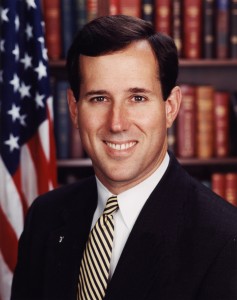
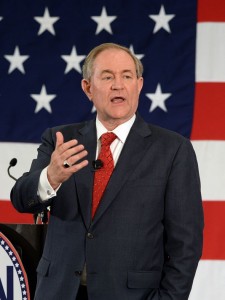
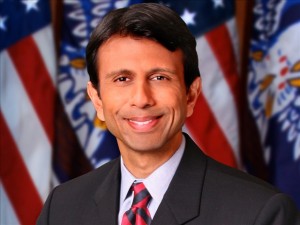
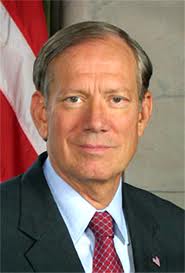
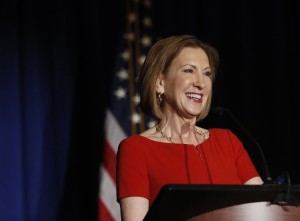
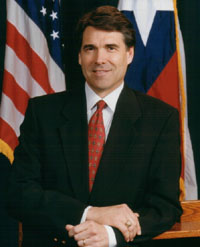
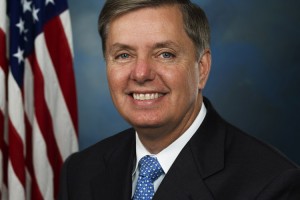






[…] With such criticisms, what might Americans have to look forward to in respect to the constitutional rule of law in a new administration? Here’s a look at the candidates in the second of the two August 6th Republican “debates”.[1] The nature of the forum limited the candidates, but there was some insight into their views the Constitution. For the constitutional comments from the candidates in the first forum, see The First Republican Debate Group and the Constitution, […]